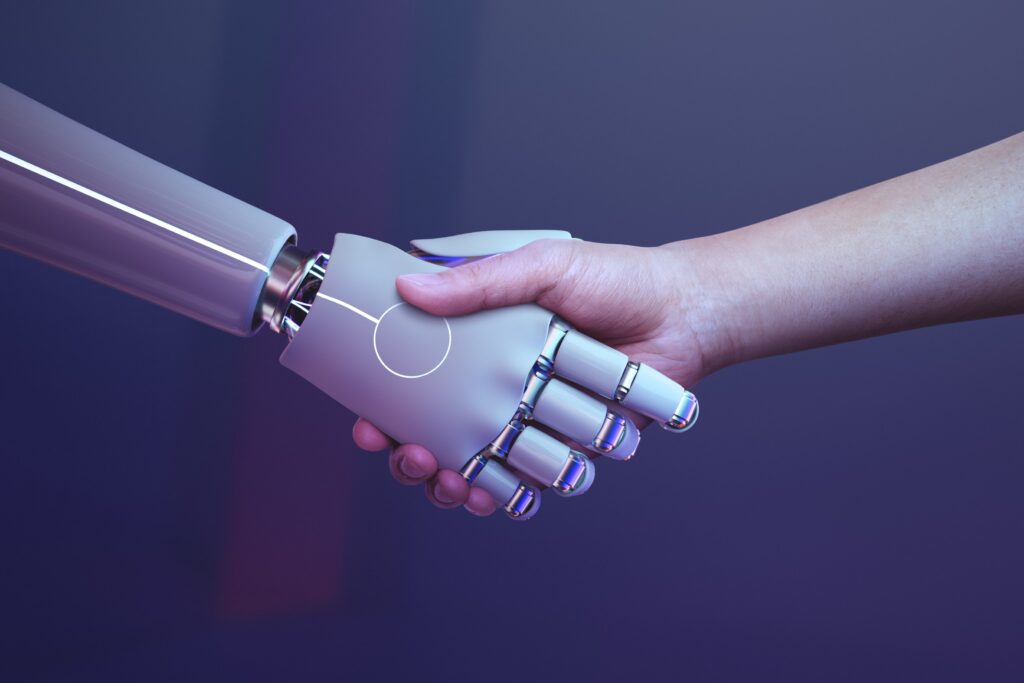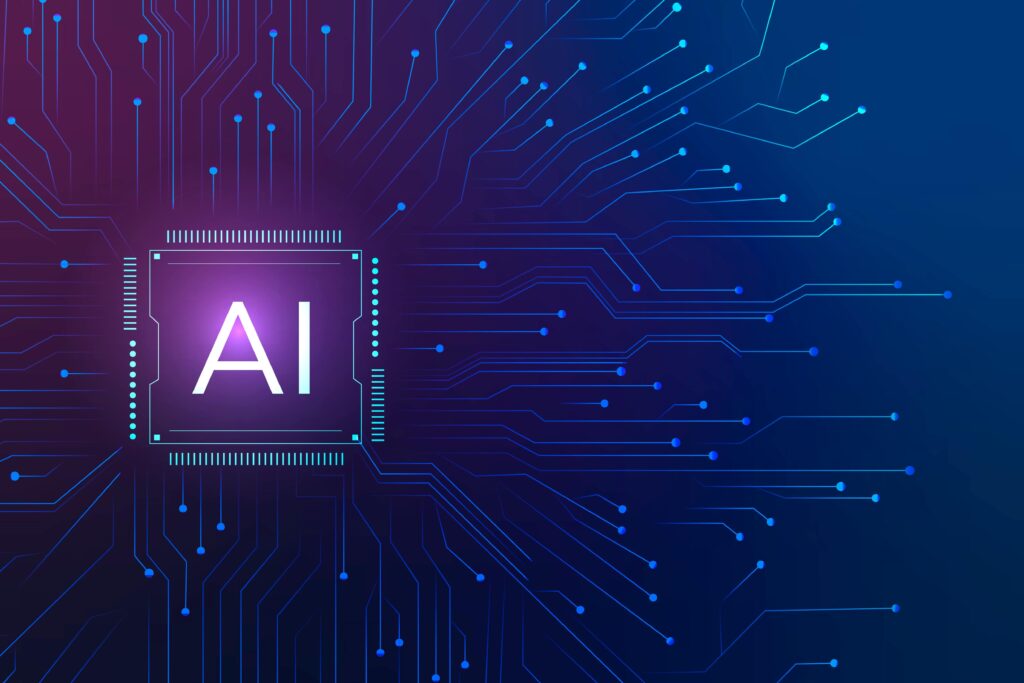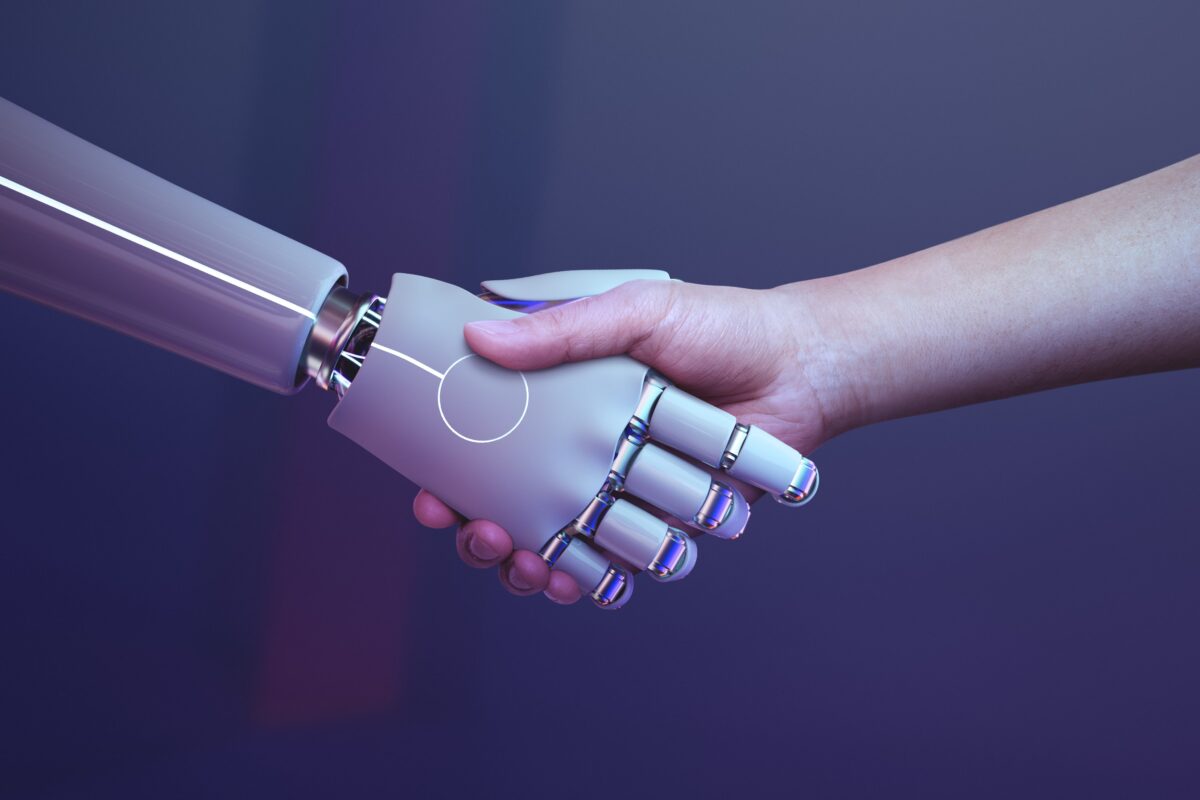Digital transformation has been a crucial aspect of modern business strategy, signifying how organizations integrate new technologies to stay competitive and efficient. Recently, a groundbreaking technology is taking this transformation to new heights: Generative AI. If you’re curious about how Generative AI is changing the landscape of digital transformation, you’re in the right place. Let’s explore how this innovative technology is reshaping various facets of business operations and strategy.

What is a key feature of Generative AI?
Generative AI is a type of artificial intelligence that can create new content, such as text, images, music, or even videos, by learning patterns from existing data.
For example, you must have used ChatGPT which creates content as per your prompt. This is the most modern case of Generative AI.
Unlike traditional AI, which operates within predefined parameters, Generative AI leverages advanced algorithms and machine learning techniques to generate novel and original material based on patterns it has learned from large datasets.
Imagine Generative AI as a highly skilled artist or writer that can generate new works based on its understanding of style, trends, and user preferences. Because of its creative potential, generative AI is an effective tool for companies trying to innovate and improve their digital strategies.
Revolutionizing Content Creation
One of the most transformative impacts of Generative AI is in the realm of content creation. Traditional content creation can be time-consuming and resource-intensive, often requiring significant human effort to produce marketing materials, product descriptions, blog posts, and more. Generative AI changes the game by automating these processes, allowing businesses to generate high-quality content quickly and efficiently.
Businesses can utilize generative AI, for example, to write articles, make social media posts, or even develop marketing visuals. This guarantees consistency and relevancy while also speeding up the content development process.
AI tools can analyze current trends, audience preferences, and industry developments to generate content that resonates with the target audience, keeping businesses ahead of the competition.
Enhancing Customer Experiences
Another area where generative AI is having a big impact is customer experience. Businesses may now provide effective and individualized round-the-clock customer care thanks to the rise of AI-powered chatbots and virtual assistants. These artificial intelligence (AI) systems can comprehend and react in real-time to a variety of consumer queries, offering pertinent answers and carrying on natural dialogues.
Generative AI makes support systems more intelligent and user-friendly, which improves customer interactions. AI chatbots, for instance, may manage standard inquiries, complete transactions, and even recommend products based on client preferences. This degree of customization increases client pleasure and loyalty in addition to enhancing the consumer experience.

Streamlining Product Development
In the world of product development, Generative AI is proving to be a game-changer. Traditional product design processes can be lengthy and costly, often involving multiple iterations and prototypes before arriving at a final product. Generative AI streamlines this process by assisting in the creation of innovative designs and prototypes based on data analysis and market trends.
For example, in the fashion industry, AI can analyze current trends and consumer preferences to generate new clothing designs. Similarly, in the automotive sector, AI can help design more efficient and aesthetically pleasing vehicle components. By leveraging Generative AI, businesses can accelerate product development cycles, reduce costs, and bring new products to market faster.
Personalizing Marketing Strategies
Marketing strategies have become increasingly sophisticated with the advent of Generative AI. With the use of this technology, companies can now analyze enormous volumes of data to find trends and consumer preferences, allowing for more individualized and targeted marketing campaigns. Businesses can utilize AI to develop customized marketing messages that communicate directly to individual clients rather than depending on generic campaigns.
Generative AI can generate personalized content recommendations, craft targeted advertisements, and even optimize pricing strategies based on consumer behavior. This level of customization boosts conversion rates, raises engagement, and improves the efficacy of marketing campaigns.
By using AI to fine-tune marketing strategies, businesses can achieve better results and build stronger relationships with their customers.

Improving Operational Efficiency
Through the automation of repetitive operations and process optimization, generative AI is also revolutionizing operational efficiency. Repetitive tasks like data input, report creation, and scheduling take up a lot of time in many firms.
These jobs can be handled by generative AI, giving staff members more time to concentrate on more strategic endeavors.
AI can help with predictive maintenance by evaluating data from machinery and equipment to determine when maintenance is required, in addition to automating chores.
This proactive approach helps prevent breakdowns, reduces downtime, and lowers operational costs. By integrating Generative AI into their operations, businesses can improve efficiency, reduce errors, and streamline workflows.
The Role of Generative AI in Innovation
Innovation is at the heart of digital transformation, and Gen AI is driving new waves of creativity and advancement. Artificial intelligence’s capacity to produce innovative concepts and solutions presents new opportunities for companies trying to stand out in a crowded market. Whether it’s developing new products, creating unique marketing campaigns, or enhancing customer experiences, Generative AI provides a valuable tool for innovation.
For example, AI-driven algorithms can explore unconventional design concepts, generate innovative marketing strategies, and even suggest new business models. Businesses can explore new opportunities, keep ahead of industry trends, and promote a continuous improvement culture by utilizing the creative potential of Generative AI.
Navigating the Challenges
Although generative AI has many advantages, it also has a unique set of difficulties. Making sure AI-generated content is used ethically is one of the main concerns.
Concerns including data privacy, intellectual property rights, and the possibility of skewed results are things that businesses need to be aware of. To guarantee that AI is utilized properly and openly, it is crucial to put best practices and rules into place.
Another challenge is integrating Gen AI into existing systems and workflows. Businesses need to invest in the right technology, train their teams, and adapt their processes to fully leverage the capabilities of AI.
Effective implementation of AI solutions and attainment of intended results necessitate cooperation between technical specialists and business executives.
Looking Ahead: Generative AI’s Future
It is anticipated that generative AI will have an even greater impact on digital transformation as it develops.
With developments in machine learning, creative capacities, and natural language processing, the technology is probably going to get more advanced. Businesses will have more chances to develop and improve their digital strategy as a result.
We may anticipate much greater generative AI integration in the future in a variety of sectors, including healthcare, finance, entertainment, and education. Businesses that adopt this technology will be well-positioned to prosper in the digital era because of its wide range of possible uses.
Conclusion
Generative AI is reshaping digital transformation by revolutionizing content creation, enhancing customer experiences, streamlining product development, personalizing marketing strategies, and improving operational efficiency.
As businesses continue to explore the possibilities of this technology, they will uncover new ways to innovate and stay ahead of the competition.
If you’re excited about the potential of Generative AI and how it can transform your business, now is the time to dive in and explore its capabilities. The future of digital transformation is here, and it’s driven by the creative power of Generative AI.
FAQ’s
What is Generative AI vs AI?
AI (Artificial Intelligence) is a broad term encompassing any technique that enables computers to mimic human intelligence. This includes a wide range of capabilities, from simple decision-making to complex problem-solving.
Generative AI is a specific subset of AI that focuses on creating new content. It learns patterns from existing data and generates similar, but original, outputs.
Key Differences
Focus: AI is a broad field, while generative AI is a specific application.
Capability: AI can analyze, predict, and make decisions, while generative AI primarily focuses on creating new content.
Examples: AI includes image recognition, speech recognition, and recommendation systems. Generative AI includes creating art, writing text, and composing music.
To summarize: All generative AI is AI, but not all AI is generative AI.
How has Generative AI affected security?
It is a double-edged sword in cybersecurity. On one hand, it can significantly enhance security by detecting threats, identifying vulnerabilities, automating responses, and personalizing protection. On the other hand, it poses new risks by enabling the creation of sophisticated malware, deep fakes for social engineering, automated attacks, and accessible hacking tools. Ultimately, while generative AI offers potential benefits, it also introduces challenges that require continuous vigilance and adaptation in the cybersecurity landscape.

